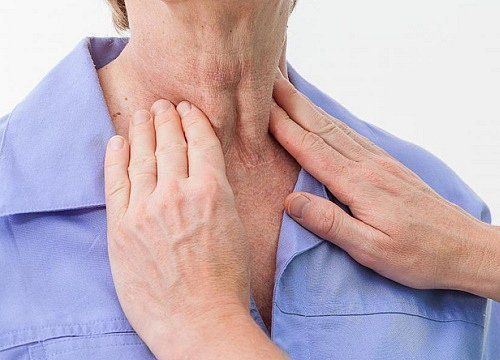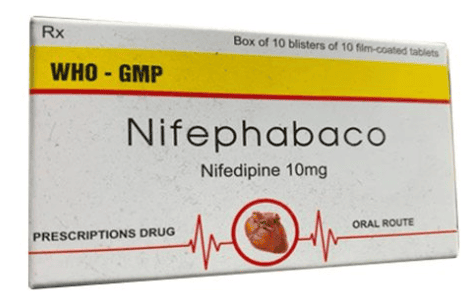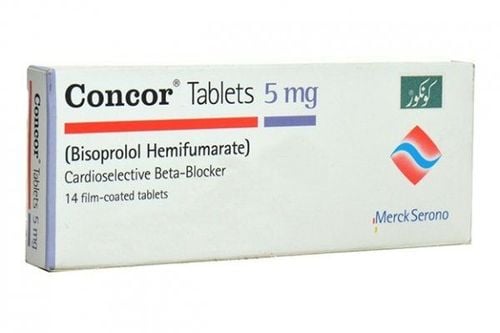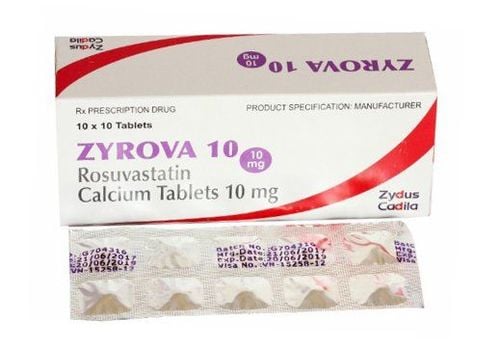This is an automatically translated article.
The question was answered by Specialist Doctor II Nguyen Bang Phong - Deputy Head of Internal Medicine / Cardiovascular Intervention - Heart Failure Specialist Clinic - Vinmec Times City International Hospital.On the afternoon of March 30, 2019, Doctor of Excellence, BSCKII Nguyen Bang Phong, Deputy Head of Interventional Cardiology Department, Vinmec Times City International Hospital shared information to help patients proactively prevent and treat effective treatment of heart failure. This is an activity within the framework of the first Cardiovascular Club activity held at Vinmec Times City.
The clinic was organized and put into operation from March 2019. This is one of the few specialized heart failure clinics built early in Vietnam with reference to the models of the US and Singapore, bringing hope of effective treatment for patients with heart failure.
One of the clinic's central missions is to guide and contribute to raising awareness and understanding about heart failure for patients and the community.
With the organization of a club activity for patients with heart failure recently, customers who attended were shared the necessary knowledge about heart failure: How to detect the disease early, follow the How to treat, implement a suitable lifestyle?,..
Here are some typical questions posed at the meeting & answered by Dr. Nguyen Bang Phong:
1. How do I find out I have heart failure?
Depending on the severity of the disease, the symptoms of heart failure will range from subtle to severe.
Due to decreased blood flow to the body: Fatigue, weakness Fainting, chest pain. Due to stagnation of blood in the lungs: Shortness of breath during exertion, gradually increasing, acute shortness of breath (at night) Dry cough Due to stagnation of blood in the periphery: Rapid weight gain due to: less urination, leg edema, systemic edema, pleural, peritoneal fluid. The liver is enlarged and painful, the neck veins are dilated. Tachycardia, palpitations, fainting due to arrhythmia.
2. When I have the above symptoms, what should I do?
If the above symptoms appear at a stable level, you can consult your family doctor (if any) by phone, or see a general practitioner, a cardiologist. When symptoms are at an acute level with symptoms of severe shortness of breath, chest pain, palpitations, fainting, it is necessary to seek emergency care.
3. How will the doctor examine and detect heart failure?
When you go to the doctor, you should bring along your old health records, which will be necessary and useful for the doctor to diagnose and treat the disease appropriately.
At Vinmec Times City Hospital, you will be initially assessed by your height, weight, pulse, temperature, blood pressure, breathing rate... The nurses will also take your medical history. about your health condition, illness, lifestyle habits, symptoms, and medications you have been taking. The doctor will conduct a clinical examination and may order a number of tests (kidney function, liver enzymes, glucose, lipids, electrolytes, cardiac enzymes, NT ProBNP, diabetes, chest X-ray. , echocardiography...
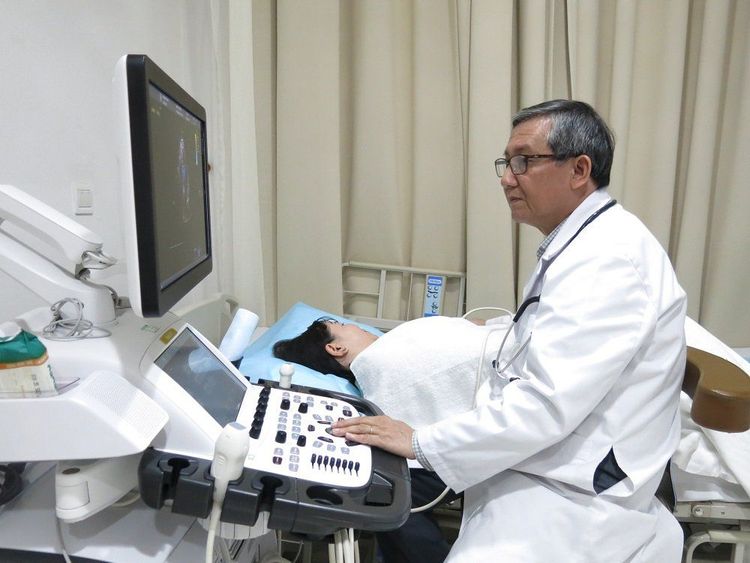
Tại Bệnh viện Vinmec Times City, các bác sĩ sẽ tiến hành thăm khám lâm sàng và có thể chỉ định 1 số xét nghiệm
4. Why do I have heart failure?
Heart failure is the result of many diseases:
High blood pressure Coronary heart disease (MI) Cardiomyopathy Heart valve disease Congenital heart disease Diabetes, thyroid dysfunction Alcohol abuse Myocarditis (virus, virus, etc.) bacteria, toxins, drugs, autoimmune) Childbirth (perinatal cardiomyopathy) If not well managed and treated, heart failure will worsen and eventually die. The mortality rate of heart failure is comparable to the average mortality rate of 4 common cancers (50% after 5 years).
When a patient has end-stage heart failure, there will often be difficulty in breathing, less urination, enlarged liver, abdominal distension, weakness, inability to eat or sleep, stress, irritability, frequent hospitalization.
5. How is heart failure treated?
The goal of heart failure surgery is to prolong life and improve quality of life: Reduce symptoms, reduce hospital admissions, and help patients lead a near-normal life.5.1. Lifestyle adjustment
Eat less salt depending on the case (< 2g/day). During decompensated heart failure, absolute salt abstinence is required. Quit smoking, alcohol, drugs. (Can use alcohol equivalent to 1 unit of alcohol/day (15 grams of pure alcohol) Do appropriate work, avoid exertion. Appropriate exercise: physical exercise, tai chi, cycling, walking , swimming / Avoid exertion.

Thường xuyên đi khám để theo dõi tình trạng bệnh suy tim
5. 2. Drug use
Many drugs have been proven effective through clinical studies
Some β-blockers ACE inhibitors, AT1 receptor blockers Combine AT1 ARB with Sacubitril (ARNI). Aldosterone antagonists. Depending on the case, the doctor may add Ivbradine, diuretics, Digoxine...
6. Advanced heart failure treatment techniques
When heart failure stage is late, poor or unresponsive to drug therapy, the patient will be treated by the following methods:
Install a ventricular resynchronization machine. Install ICD machine for sudden death Install ventricular assist device. Heart transplant Advanced heart failure treatments often require very high costs, and the source of organs is scarce. Therefore, when there are cardiovascular diseases, patients need to have a very clear prevention and treatment strategy for heart failure: Early detection, correct treatment, adherence to treatment, combined with lifestyle adjustments.
7. How to prevent heart failure?
Healthy living: Do not smoke, do not use addictive drugs, do not abuse alcohol. Exercise regularly. The schedule of work, rest and entertainment is scientific and appropriate. Most important: Early detection and proper management and treatment of diseases that can lead to heart failure.
8. Can I have sex when I have heart failure?
Appropriate sex is not harmful, not dangerous to heart failure. However, you should avoid when you are having shortness of breath, chest pain, are very tired... You need to establish for yourself a way, position, frequency of sex for yourself, so that it is not too much. strength. Do not use aphrodisiacs or erectile dysfunction drugs. There needs to be sympathy, coordination with your partner, life partner. Conclusion:
You need to prevent heart failure by living a healthy life. When there are cardiovascular diseases that can cause heart failure, you need to be detected early and adhere to treatment. When you have heart failure, you need to keep an optimistic spirit without being subjective, adhere to treatment, keep a healthy, active lifestyle, work and enjoy life in a suitable and harmonious way to improve the quality of life. quantity of life. Customer opinion at the event: Customer Nguyen Thi To: "Dr. Bang Phong lecture is easy to understand, clear, coherent, very close to the patient. Nurse Nguyen Thanh Phu is dedicated to the patient, taking care of the patient. , comely." Customer Nguyen Thi Nguyet :'' Sincerely thank you for giving me very easy to understand advice to help me draw from my daily experience. Thank you for your warm welcome. I myself sincerely thank ''. Heart Failure Clinic - Cardiovascular Center of Vinmec Times City International Hospital would also like to thank you for your presence.
Deputy Head of Interventional Internal Medicine
Head of Cardiology Clinic Unit
Dr. CCII Nguyen Bang Phong






